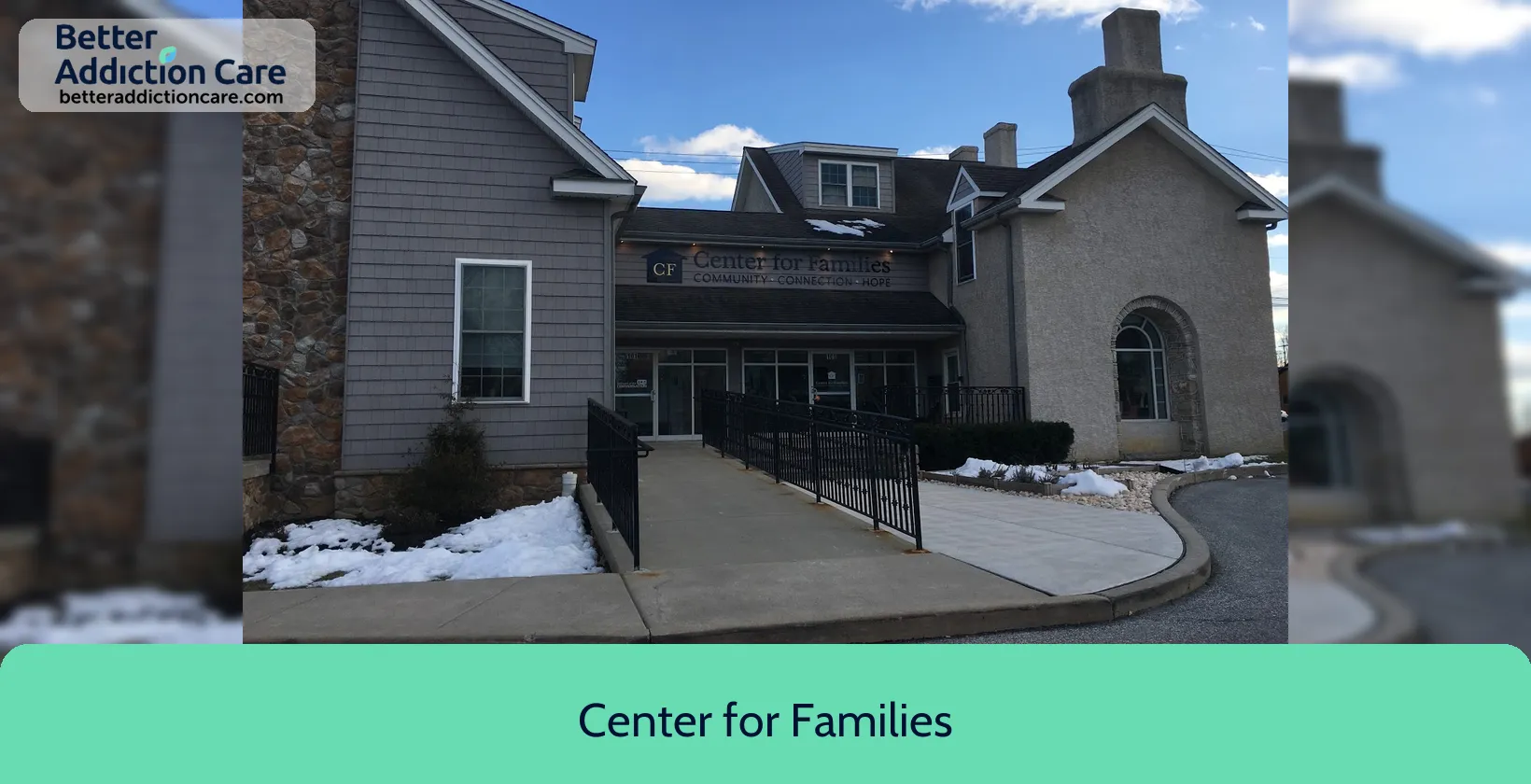Malvern Treatment Center

Overview
Malvern Treatment Center is an accredited substance abuse treatment center that provides inpatient detoxification, for men between 18 and 65+ years of age. As part of their special programs, Malvern Treatment Center treats clients with co-occurring mental and substance use disorders, clients who have experienced trauma, and clients with co-occurring pain and substance use disorders. To help patients achieve sobriety, Malvern Treatment Center provides treats alcohol detoxification, benzodiazepines detoxification, and cocaine detoxification.. Afterward, patients receive cognitive behavioral therapy, telemedicine/telehealth therapy, and substance use disorder counseling during treatment. Malvern Treatment Center is located in Malvern, Pennsylvania, providing treatment for people in Chester County, accepting cash or self-payment, medicaid, and state-financed health insurance plan other than medicaid.
Malvern Treatment Center at a Glance
Payment Options
- Cash or self-payment
- Medicaid
- State-financed health insurance plan other than Medicaid
- Private health insurance
- Federal military insurance (e.g., TRICARE)
Assessments
- Screening for tobacco use
- Comprehensive mental health assessment
- Comprehensive substance use assessment
- Outreach to persons in the community
- Screening for mental disorders
Age Groups
- Seniors or older adults
- Young adults
- Adults
Ancillary Services
- Case management service
- Mental health services
- Social skills development
- Transportation assistance
Highlights About Malvern Treatment Center
7.36/10
With an overall rating of 7.36/10, this facility has following balanced range of services. Alcohol Rehabilitation: 8.00/10, Drug Rehab and Detox: 7.85/10, Insurance and Payments: 6.00/10, Treatment Options: 7.58/10.-
Alcohol Rehabilitation 8.00
-
Drug Rehab and Detox 7.85
-
Treatment Options 7.58
-
Insurance and Payments 6.00
Accreditations
State mental health department:
State mental health department accreditation refers to the process of evaluating and certifying the quality and standards of a state's mental health department, ensuring that it provides high-quality services and meets specific criteria for mental health care. The accreditation process is performed by a third-party organization and helps to improve the overall care and treatment of individuals with mental health conditions.
State department of health:

State Licenses, issued by government agencies, authorize rehabilitation organizations to legally operate within designated geographical areas. The specific licenses required for operation are typically determined by both the nature of the rehabilitation program provided by the facility and its physical location.
Commission on Accreditation of Rehabilitation Facilities (CARF):

CARF accreditation is a prestigious recognition for rehabilitation and human service organizations. It signifies that an organization meets high-quality standards and is committed to providing top-level care. CARF conducts rigorous evaluations to ensure compliance, enhancing an organization's credibility and reassuring clients and funders of exceptional service quality. This accreditation promotes excellence and continual improvement in the rehabilitation and human services field.
Treatment At Malvern Treatment Center
Treatment Conditions
- 24-Hour Clinical Care
- Alcoholism
- Mental health treatment
- Substance use treatment
- Co-occurring Disorders
Care Levels
- Hospital inpatient treatment
- Short-term residential
- Residential detoxification
- Hospital inpatient/24-hour hospital inpatient
- Aftercare
Treatment Modalities
- Cognitive behavioral therapy
- Telemedicine/telehealth therapy
- Substance use disorder counseling
- Trauma-related counseling
- Smoking/vaping/tobacco cessation counseling
Ancillary Services
Languages
- Sign language services for the deaf and hard of hearing
Additional Services
- Pharmacotherapies administered during treatment
- Mentoring/peer support
- Breathalyzer or blood alcohol testing
Special Programs
- Clients with co-occurring mental and substance use disorders
- Clients who have experienced trauma
- Clients with co-occurring pain and substance use disorders
Get Help Now
Common Questions About Malvern Treatment Center
Contact Information
Other Facilities in Malvern

6.74

7.02

6.92
DISCLAIMER: The facility name, logo and brand are the property and registered trademarks of Center for Families, and are being used for identification and informational purposes only. Use of these names, logos and brands shall not imply endorsement. BetterAddictionCare.com is not affiliated with or sponsored by Center for Families.
